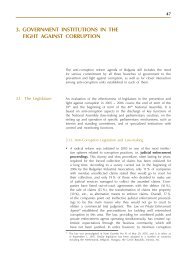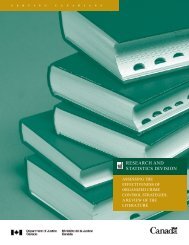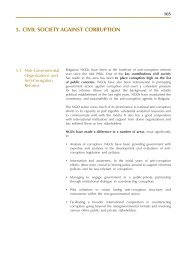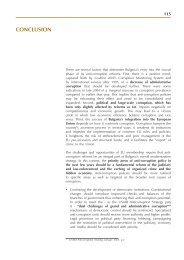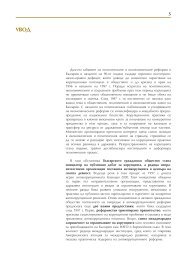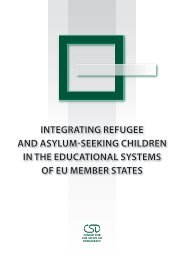National Threat Assessment 2008. Organised Crime - Politie
National Threat Assessment 2008. Organised Crime - Politie
National Threat Assessment 2008. Organised Crime - Politie
You also want an ePaper? Increase the reach of your titles
YUMPU automatically turns print PDFs into web optimized ePapers that Google loves.
and property crime is indeed as strong as some schools of thought within<br />
criminology assume, the moment will inevitably come when property crime<br />
will increase once again. There are currently signs indicating that we are past<br />
the peak of the economic boom and that we are about to experience slower<br />
growth and possibly an economic recession. The credit crunch that began in<br />
the US in 2007 is spreading to Europe and will accelerate this process.<br />
• Economic and political developments in Eastern Europe<br />
A major reason for foreign and semi-resident groups 51 to commit crimes<br />
in Western Europe is probably the prosperity gap. Obviously, this prosperity<br />
gap has existed for much longer. This is an important factor, especially when<br />
combined with the general increase in mobility, which is also encouraged by<br />
the elimination of the national borders within the European Union. The<br />
prosperity gap will remain for the foreseeable future. This is a so‐called<br />
economic ‘pull factor’. In Belgian research in which offenders were<br />
interviewed the majority stated that they had come to Western Europe for<br />
economic reasons. Although the living standards in the Eastern European<br />
countries that have acceded to the EU are expected to approach or match<br />
those of the ‘old’ Member States (in due course), it is doubtful whether this<br />
will be achieved within the period covered by this NTA. In other words: if the<br />
level of prosperity in the countries of origin of the perpetrators of organised<br />
property crime does not increase considerably in the next four years, it can<br />
be assumed that the appeal of Western Europe will remain at the same level<br />
and therefore that no significant changes will occur in the state of affairs.<br />
In addition, the EU intends to increase the number of Member States within<br />
the next few years 52 , so it can be assumed that people from those countries<br />
will become more mobile within the EU as well. Furthermore a number of<br />
political develop ments are currently underway that do not improve the<br />
political stability of the Balkans 53 . It is impossible to predict whether this<br />
will result in an actual conflict.<br />
However, the increased mobility is not limited to (candidate) EU Member<br />
States, because increased migration from other Eastern European and (West)<br />
African countries can also be seen. The temporary or permanent residence<br />
of groups of immigrants from these countries brings the risk of imported<br />
(organised) crime. The formation of ‘criminal bridge heads’ is quite possible<br />
in these circumstances.<br />
51<br />
’Semi-resident groups’ are criminal organisations that live for a period of several months in<br />
the Netherlands but are not permanently resident. These groups often have a subcultural basis<br />
in the Netherlands where, for example, they can find accommodation and other facilities.<br />
52<br />
Croatia and Macedonia by 2012, Turkey probably in 2015.<br />
53<br />
For example, the declaration of the independence of Kosovo.<br />
chapter 4 – Supraregional property crime<br />
143



